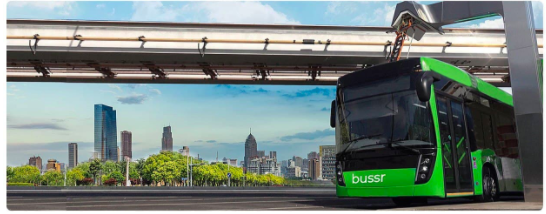With multiple transportation options and millions of different types of needs, Mobility as a Service, or MaaS, is poised to transform an unyielding transportation system. Estimated to have a market size north of $30 billion, MaaS allows communities to increase efficiency by reducing or eliminating the need for each individual to own a personal vehicle, and cities can reallocate space currently dedicated to parking lots or roads to other city infrastructure.
Two key factors are driving the need for world cities to adopt strategies such as MaaS. First of all, while new infrastructure relieves congestion, it is expensive and takes years to build, and for people that want a sustainable approach—this means fewer cars; and secondly, more consumers have embraced innovative mobility options and apps.
How tech startups like Bussr disrupt the mobility sector
Cities around Asia experience daily gridlock as migration to and from urban areas increases. Already, Indonesia, Southeast Asia’s most populous country, has nearly 56% of its 267 million people living in urban areas. Transportation planners seek to relieve congestion issues associated with massive, daily transportation while avoiding or reducing enormous costs traditionally associated with this effort.
This is where digital MaaS infrastructures, such as the Singapore-based startup Bussr, come into play. In a nutshell, these services allow travelers to plan, book, and pay for mobility services, including car-sharing, bike-sharing, ride-sharing, buses, and trains, in a single application. It is an innovative approach that reduces energy consumption and CO2 emission in Southeast Asian countries by reducing demand for private vehicles.
While consumers using MaaS primarily cite cost savings as the impetus for trying shared mobility, Bussr’s iOS and Android apps make it easier to use public transport and other modes of transportation. Integration of mobility options and information provided by public transit operators, authorities, and users is combined and used to determine the best route and transportation options, improving the ecological position. When single transportation modes are not available, the app configures the trip using multiple methods.
Using Bussr, consumers can avoid ticket kiosks or in-person purchases. Ticketless entry to public and private transportation within the city and seamless integration of 60 major payment options such as GoPay, Ovo, Dana, Link Aja, and ShopeePay deliver a less complicated and more productive approach to trip planning.
As a customizable white-label, Bussr also offers a full-stack mobility and fleet management platform that aids organizations and enterprises in providing and managing user and employee transportation. Using AI, governments, cities, transit agencies and operators, and any other organization with mobility requirements receives planning, operations, and analytics they can use to help reduce congestion, grow ridership, and increase efficiencies and asset utilization.
A growing field
As the sector grows at an astonishing rate, technology solutions for transportation and mobility are undoubtedly becoming fairly interesting fields to established corporations and investors. As Bussr enables partnerships with tools for diversified monetization options, ride commissions, software subscription fees, enterprise subscriptions for employees, and add-on features fees, the young company was already able to close several impressive partnerships and produce successful case studies.
So far the company has reported having reached more than 1,000 mobility partners, about six million trips, as well as north of 2,500 destinations in 90 cities since its launch in 2019.
Through established relationships with major transportation providers like Royal Platinum, Pahala Kencana, and Big Bird, Bussr is able to provide services in a regulated approach that results in options consumers find appealing. This has also attracted various high profile investors, as Bussr has raised an undisclosed amount during a fundraise in 2019, involving the likes of Bridford Group, Altitude partners, AI Capital, Le Mercier, Jack Selby Thiel Capital, as well as strategic angel investors from Facebook, Paypal, Spotify, Siri, Didi, Zoom, Lyft, impossible food.
What the future holds
For short- and mid-distance travel, cars continue to be the primary choice for consumers. Still, in a report published by IPSOS NEWS, they are ready to accept innovative transportation options such as MaaS.
Statistics specific to MaaS are not yet readily available, but as an indicator, one can look to the adoption and acceptance of car-sharing. According to Statista, the global number of car-sharing users grew from 350,000 in 2006 to 7 million in 2015, and growth is forecasted to reach 36 million by 2025.
Increasing demand is the catalyst for MaaS—a movement driven by shared mobility solutions such as ride-share, car-share, public transport, and others. Integration improvements made by Bussr and solutions like theirs that combine modes of transporting with bookings and payments will not only attract users, it will enhance their experiences. This data, when shared with cities, will lead to informed decisions about regional transit needs, infrastructure, and scheduling.

